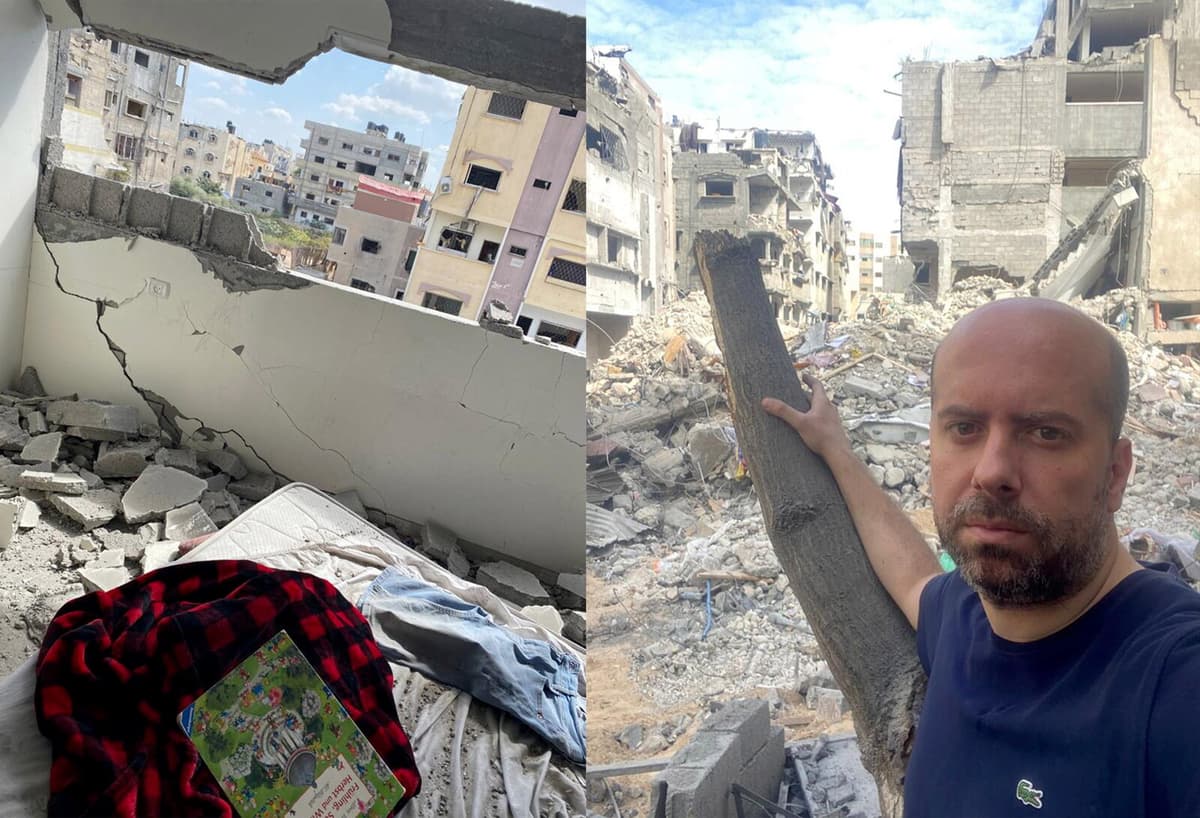On May 1, a week before Israel took control of the Gaza Strip's border crossing with Egypt, Ahmad Ashour's wife and three children managed to get to the neighboring country. A week later, he was supposed to follow his family, but by then it was too late.
A week turned into five months. We had so many plans, says Ahmad Ashour over a shaky line from southern Gaza, where the family fled in October after their house was ruined in an Israeli attack.
Since he was separated from his family, everything has been "very black", says Ashour. He works as much as he can and buys food when he can afford it – a kilo of tomatoes now costs around 50 shekels, equivalent to about 135 kronor. He spends his nights at his uncle's house with about 50 others. As soon as there is coverage, he talks to his wife and children – or presses "update" on all news sites in search of positive news about the border.
Wants friends – and a uniform
40 miles away, in Cairo, the little one Nahawand just turned one and a half years old.
A few days ago, he got his first vaccination. I miss him, miss seeing him grow up. He only knows his father through a screen.
The daughter Laure, who had just started first grade when the war broke out, cannot attend school in Egypt because the family does not have a residence permit. Instead, the parents are trying to get her to study online via a school in Ramallah on the West Bank. But she refuses.
She says: "Dad, the school I want to go to is a building. Going to school is having friends and a school uniform, where is all that?" Imagine not having any answers to why she can't go to school with her neighbors in the mornings.
Hopes remain
Ahmad Ashour previously led the reading-promoting Tamer Institute's work in the Gaza Strip. Now he has moved on to being a consultant. In the fall, he was supposed to start a research position at the university in Tours, France, but it has been put on hold. Like everything else in life.
The frustration is great. And since the war spilled over to Lebanon, it has only grown, says Ashour.
It feels like we've been forgotten. Our news has become yesterday's news. Everyone else's life continues – only ours has completely stopped.
Ahmad Ashour is afraid every day. He has lost both colleagues and cousins in the war. Living with the fear of death for over a year takes a toll on mental health, he says.
No one here is doing well. It's impossible to understand that it's been a whole year and the war is still going on.
But I still have hope. Without hope, we can't continue.
More than 41,000 Palestinians in the Gaza Strip have been killed since the start of the war, which followed a terrorist-stamped Hamas attack on Israel on October 7, 2023. The figures come from health authorities in Hamas-controlled Gaza.
Among the dead are nearly 300 aid workers, nearly 900 healthcare workers, and 170 journalists/media workers.
Around 1.9 million people are on the run within the Gaza Strip's borders, according to UN estimates. Many of them have been forced to flee multiple times.
More than half of the residential buildings in Gaza have been damaged or destroyed in Israeli attacks. 68 percent of the arable land in Gaza has been damaged in the war, most extensively in northern Gaza.
Nearly half a million people in the area are estimated to face catastrophic levels of food shortages, according to the UN-backed IPC (Integrated Food Security Phase Classification).
Nearly 90 percent of school buildings in Gaza are damaged or destroyed. Up to 625,000 students in Gaza have not been able to continue their education due to the war.
Source: Ocha, Unosat, WHO, IPC






